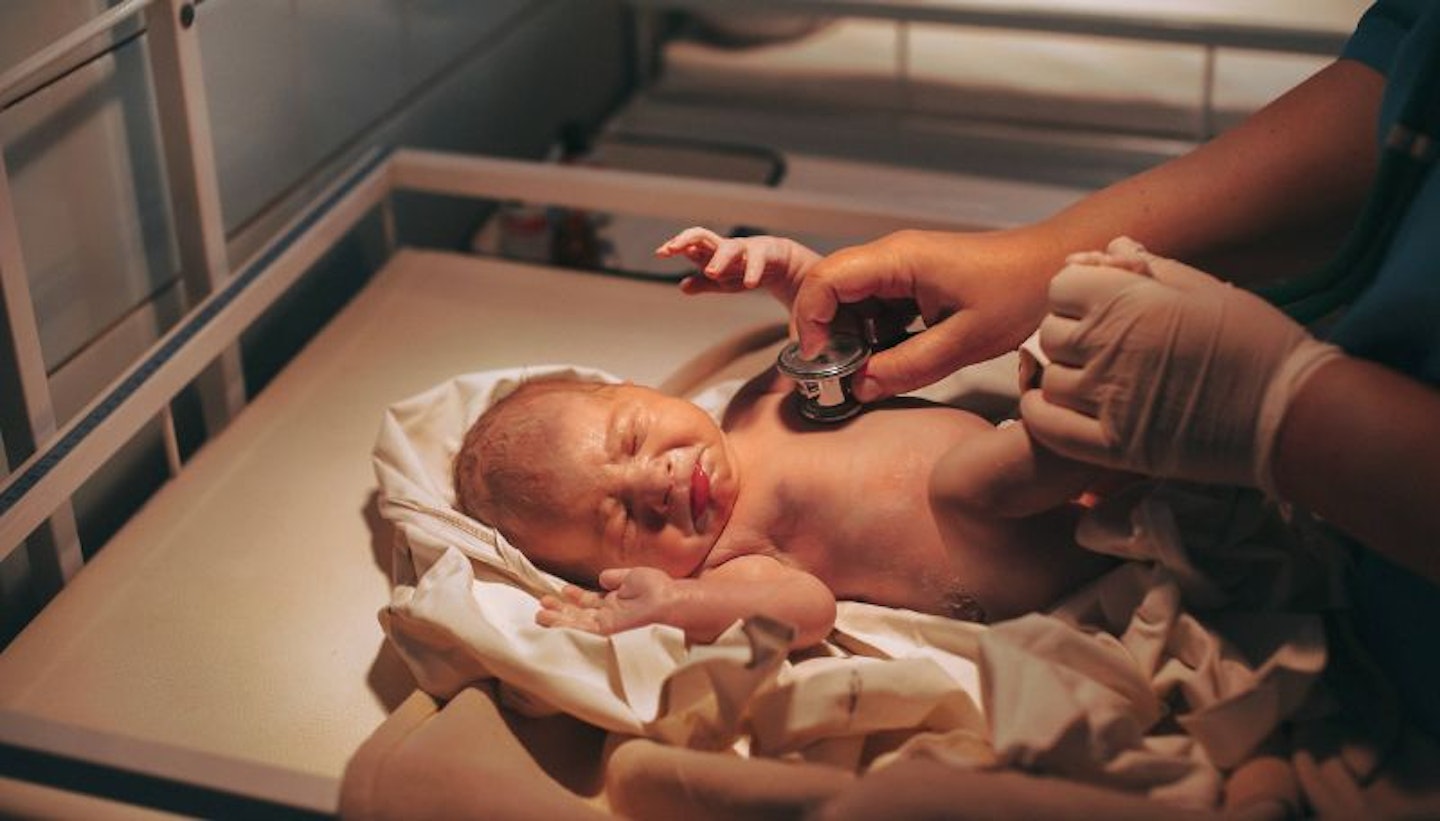When you're pregnant there is a whole list of precautions you take in order to keep yourself and your baby safe, such as attending all antenatal appointments, avoiding certain foods and having routine tests to make sure everything is okay. However, when it comes to Group B Strep, it can bring up some questions.
Group B Strep is a type of bacteria that's fairly common, and can be found in the urinary tract, throat and digestive system. It doesn't have any symptoms, but it can occasional cause problems to those with certain medical conditions, especially women who are pregnant and newborn babies.
The test for Group B Strep is not routinely offered to pregnant women in the UK, despite two to four in every 10 women being carries of it.
We spoke to Jane Plumb, Chief Executive and Co-Founder of Group B Strep Support about what Group B Strep is, and what you can do if you are a carrier.
What does it mean if you have Group B Strep
Though Group B Strep isn't typically harmful, it can occasionally cause serious infections in young babies, and even more rarely in babies before they are born.
What happens if you test positive for Group B Strep?
Jane said: "If you have a positive test result for Group B Strep when and what happens depends where it was found."
"If it’s from a urine sample, then it may be causing a urinary tract infection and you’ll likely be given oral antibiotics to clear it, plus you’ll be offered antibiotics intravenously when your labour starts or waters break at term."
Jane also explains that if Group B Strep is found from a vaginal or rectal swab, then you won’t be offered any treatment at the time, but you will be offered the intravenous antibiotics once labour starts or waters break at term.
Can you get rid of Group B Strep?
Jane explains that "Group B Strep carriage (where it’s found on a vaginal or rectal swab) is normal, and can come and go, though that usually happens over periods of months rather than days or even weeks. So finding it this pregnancy, doesn’t necessarily mean you’ll be carrying it in another pregnancy, and vice versa."
If you are a carrier, you will be offered intravenous antibiotics in labour. "Intravenous antibiotics in labour are highly effective at reducing the chance of the Group B Strep causing infection in your newborn baby" Jane adds.
She also explains that it’s important to be aware that the test most commonly used to detect Group B Strep on the NHS will miss up to 50% of Group B Strep carriers, but you can look into more reliable Group B Strep testing.

Will my baby be okay if I have Group B Strep and what happens if it goes untreated?
If you are a carrier and are treated with intravenous antibiotics, it dramatically reduces the risk of infection in a new baby. Although Jane explains that if it does pass on, "Group B Strep infection would need to be treated promptly and aggressively. It should be given as soon as possible and antibiotic therapy should not be stopped early, and should be continued for at least seven days or 14 days if meningitis is present."
Jane goes on to add, "with this, the majority of babies with the infection can be treated successfully, although some might require staying in the neonatal intensive care unit, with some being transferred to a different hospital with specialised facilities for treatment and care."
What are the effects of Group B Strep in babies?
It's worth remember that most babies will recover fully from their Group B Strep infection, but it can cause sepsis, meningitis or pneumonia, with approximately 800 babies each year developing it in the UK, which is the same as two babies a day.
While most will have no complications from infection, one in 10 of the babies who have been successfully treated for the infection could have a long term disability.
Here are some of the symptoms to look out for:
• Grunting, noisy breathing or seems to be working hard to breathe when you look at the chest or tummy, or not breathing at all.
• Being very sleepy and/or unresponsive
• Inconsolable crying
• Being unusually floppy
• Not feeding well or not keeping milk down
• Having a high or low temperature, and/or be hot or cold to the touch
• Having changes in their skin colour, including blotchy skin (this might not be as noticeable on dark skin)
• Having an abnormally fast or slow heart rate or breathing rate
• Having low blood pressure (identified by tests done in hospital)
• Having low blood sugar (identified by tests done in hospital)
Jane also explains that complications from Group B Strep can be life threatening, so it's important to seek medical help as soon as possible if your baby presents any of the symptoms.
Can I have a homebirth with Group B Strep?
While not impossible, Jane explains that it's important to discuss a home birth with your midwife to see if it is an option.
"If you want a home birth with intravenous antibiotics during labour until your baby is born, it may be possible for your midwife to give you IV prescribed for you by your GP. However, this is not widely available. Some areas won’t permit IV to be given at home,"
She adds that "around 20-25% of women having home births are likely to be carrying Group B Strep when they give birth without knowing it" so it's not an option you have to completely rule out.

Can I still breastfeed if I have Group B Strep?
If you're planning to breastfeed, Jane mentions "although there have been isolated cases describing Group B Strep infection, possibly related to breast milk contamination, the advantages of breastfeeding will, in our medical advisory panel’s opinion, greatly outweigh the remote risk of transmitting Group B Strep via breastfeeding."
She also mentions that the antibiotics recommended for during labour and at intervals until the baby is born are safe for breastfeeding mothers, although you should make sure your medical professionals know you intend to breastfeed your baby.
Can Group B Strep be passed to my partner?
Like many bacteria, Group B Strep can be passed from one person to another through skin-to-skin contact, such as hand contact, kissing, close physical contact etc.
Jane mentions: "around 20-40% of women carry Group B Strep and as it's found in the vagina and rectum of colonised women, it can be passed through sexual contact. There are no known harmful effects of carriage itself and the it does not cause genital symptoms or discomfort."
"Group B Strep carriage is not a sexually transmitted disease, nor is it a sign of ill health or poor hygiene. No-one should ever feel guilty or dirty for carrying Group B Strep – it’s normal."
About the expert
Jane Plumb is Chief Executive and co-founder of Group B Strep Support. Outside of the Group B Strep Support Group, Jane is the Royal College of Obstetricians & Gynaecologists’ Women’s Voices Lead and Chair of their Women’s Network.
Samantha Ball is a Features & Reviews Editor for Mother&Baby, having written for the brand since 2018. She's a mum of two and loves browsing for the best and current trending products for little ones and for cute seasonal outfits.
